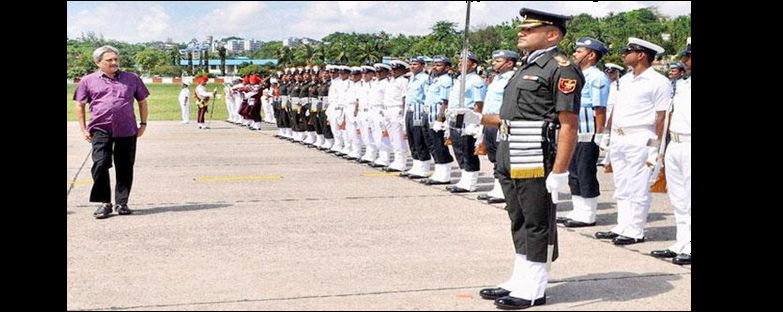7CPC: PLAYING WITH FIRE

MYSURU: News of the unhappiness of the Armed Forces (Fauj, for short) with the bureaucracy is old hat. The contempt in which the bureaucracy holds the Fauj is also old hat, reflected most recently in the 7CPC making the already unfavourable position of the Fauj even more unfavourable.
When the 7CPC recommendations were to be implemented for all government servants, all the three Service Chiefs went to THE government and asked the existing pay anomalies be rectified before the 7CPC recommendations were implemented for the Fauj.
That is, the 7CPC award was unacceptable to the Fauj as it was unjust. This move by the three Service Chiefs was in their understanding of the widespread outrage among the rank-and-file and the officers, that the 7CPC had given them a raw deal.
This outrage had already gone viral on social media, and the signal from Service Headquarters informing All Ranks that the matter has been referrred to government and that they should patiently await the outcome, was to pre-empt any overt demonstrations of outrage, which would go against military discipline.
Now the outcome of the Service Chiefs' approaching the government is that Defence Minister Manohar Parrikar has overruled them and directed them to implement the 7CPC award for the defence services. This has created a very grave situation, in which there can be three possible outcomes, which we will consider along with the repercussions.
One, the Service Chiefs follow Parrikar's directions. If this is done, they will have to face the fallout of their decision among the rank-and-file and the officers, who are already keyed-up with anger at continuing injustice from the Sarkar (the combination of politicians and bureaucrats). This is wholly unpredictable, and if the worst happens, it will have extremely serious repercussions on military functioning.
Two, if the Service Chiefs argue with the Defence Minister and insist on having anomalies are attended to before implementing the 7CPC award, it will amount to disobedience of orders. This would be a constitutional crisis of hitherto unseen magnitude, and in the worst case, may result in dismissal of the Service Chiefs.
Three, the Service Chiefs have the option of tendering their resignations. (One may presume that all three would do so, in the present circumstance). If government accepts their resignations, the officers next-in-line to take their places would be faced with the same situation.But if on the other hand, the government does not accept the resignations, it will possibly require a resignation from the Defence Minister.
In any of the three contingencies, the nation's defence preparedness will be irretrievably compromised.
All this is at the end of many happenings ... Prime Minister Narendra Modi's promises at Rewari when he addressed Veterans in the run-up to the 2014 election, and his subsequent promises after he assumed office, to get more for the military, have all been proven false.
PM Modi has probably not understood that the soldier is not a fool, and also that the Fauj is the nation's instrument of last resort.
Defence Minister Parrikar's contempt for the defence services is a matter of discussion within the serving and retired Fauji fraternity, who noted that he inspected a military guard of honour wearing chappals, that he “saluted” at the Amar Jawan Jyoti with his vest showing, and that he attended the International Fleet Review in February wearing casual clothes, whereas he dresses appropriately when he is abroad.
Parrikar’s peremptory direction to the three Service Chiefs to implement the 7CPC award without delay is the latest itdisplay of his dismissive approach to the Fauj. It is being said that both the Prime Minister and his Defence Minister are jointly responsible for the present contretemps.
(Major General S.G. Vombatkere, VSM, retired as Additional DG Discipline & Vigilance in Army HQ AG's Branch. )



